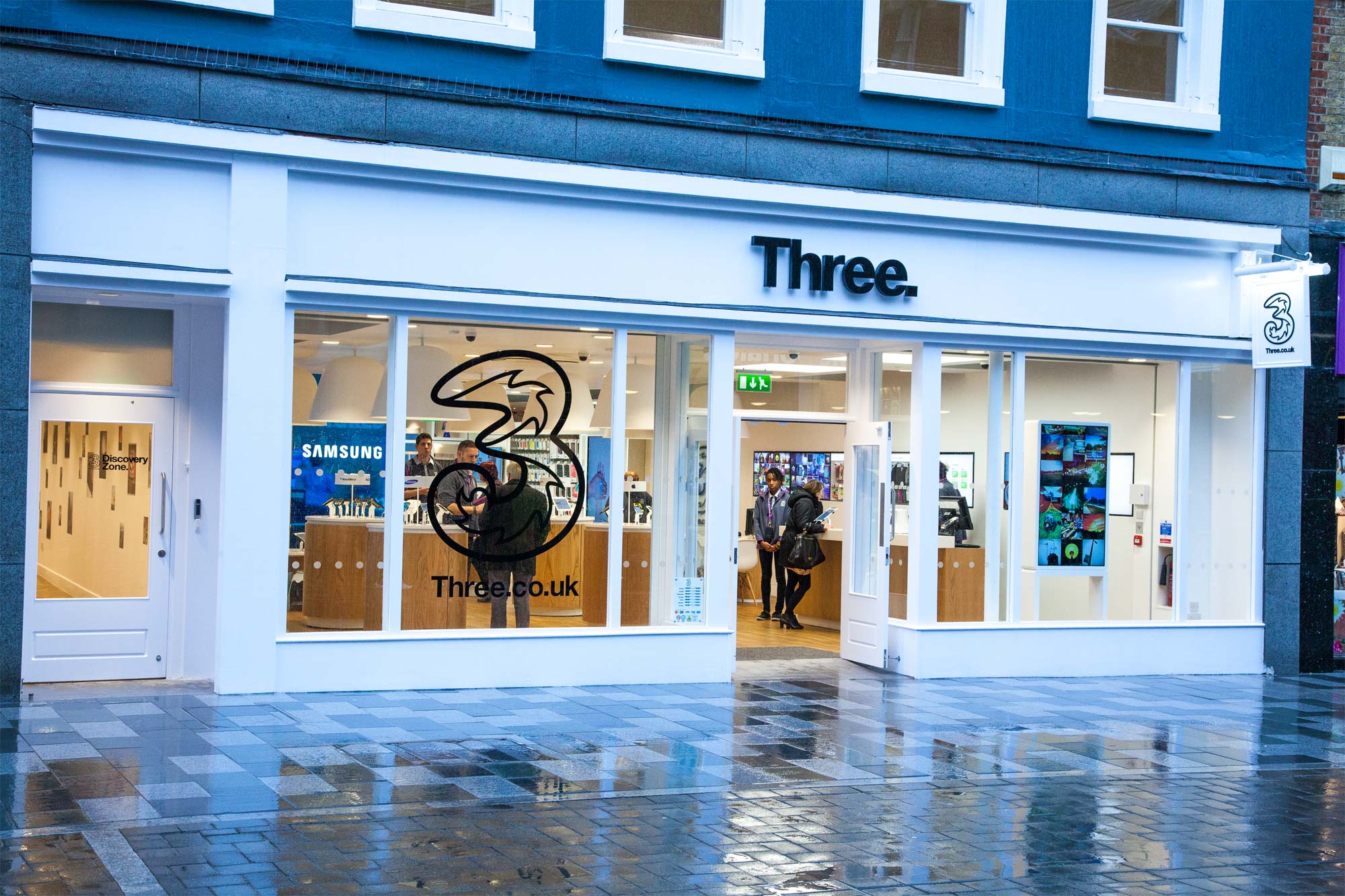Three presses ahead with ad-block plans, despite EU guidance
Three wants to enable network-level ad-blocking in 2017

Three will push ahead with plans to introduce ad-blocking on its network, despite EU opposition.
The mobile operator plans to roll out ad-blocking in 2017, claiming mobile ads are intrusive and appear in front of users without their agreement.
However, the EU's Body of European Regulators for Electronic Communications (Berec) has now released guidance saying that network providers cannot meddle with any internet services or apps their customers use.
The guidance reads: "Providers of internet access services shall not block, slow down, alter, restrict, interfere with, degrade or discriminate between specific content, applications or services."
The guidance is for national regulators though, rather than being directly applicable to network providers, and it's telecoms regulator Ofcom's job to interpret Berec's guidance and choose how it enforces the guidance in the UK.
An Ofcom spokesman told IT Pro: "Ofcom will monitor compliance with the new rules, and look into any complaints received. We will consider any potential breaches as they arise in accordance with our interpretation of the Regulation, and drawing upon the Berec Guidelines to inform our approach."
As its statement suggests, Ofcom will wait and see whether network providers' plans represent a breach of the Berec guidance.
Sign up today and you will receive a free copy of our Future Focus 2025 report - the leading guidance on AI, cybersecurity and other IT challenges as per 700+ senior executives
As a result, IT Pro understands that Three will press on with ad-blocking plans it first trialled in June, when it stated its intention to "revolutionise the mobile advertising experience" of its users.
If its plans remain unchanged, they would involve making the advertiser pay for data charges related to ads, not the user, ensuring customers' security and privacy, and ensuring that the advertising received by customers is relevant and interesting to them.
When Three announced its plans, CMO for the UK, Tom Malleschitz, said: "This is the next step in our journey to make mobile ads better for our customers.
"The current ad model is broken. It frustrates customers, eats up their data allowance and can jeopardise their privacy. Something needs to change."
Three declined to comment on the story, and it is not known when in 2017 it will enable network-level ad-blocking, although IT Pro understands the service would be opt-in for all users.
The Internet Advertising Bureau (IAB) said in February that ad-blockers could force users to pay for content they currently receive for free.
Ad-blocking services are predicted to cost publishers 19 billion by 2020, according to a study by Juniper Research in May, with the number of ad-block users rising 41 per cent year-on-year in 2015.
-
 Redefining resilience: Why MSP security must evolve to stay ahead
Redefining resilience: Why MSP security must evolve to stay aheadIndustry Insights Basic endpoint protection is no more, but that leads to many opportunities for MSPs...
-
 Microsoft unveils Maia 200 accelerator, claiming better performance per dollar than Amazon and Google
Microsoft unveils Maia 200 accelerator, claiming better performance per dollar than Amazon and GoogleNews The launch of Microsoft’s second-generation silicon solidifies its mission to scale AI workloads and directly control more of its infrastructure
-
 European Commission approves data flows with UK for another six years
European Commission approves data flows with UK for another six yearsNews The European Commission says the UK can have seamless data flows for another six years despite recent rule changes
-
 Three things you need to know about the EU Data Act ahead of this week's big compliance deadline
Three things you need to know about the EU Data Act ahead of this week's big compliance deadlineNews A host of key provisions in the EU Data Act will come into effect on 12 September, and there’s a lot for businesses to unpack.
-
 The second enforcement deadline for the EU AI Act is approaching – here’s what businesses need to know about the General-Purpose AI Code of Practice
The second enforcement deadline for the EU AI Act is approaching – here’s what businesses need to know about the General-Purpose AI Code of PracticeNews General-purpose AI model providers will face heightened scrutiny
-
 Meta isn’t playing ball with the EU on the AI Act
Meta isn’t playing ball with the EU on the AI ActNews Europe is 'heading down the wrong path on AI', according to Meta, with the company accusing the EU of overreach
-
 ‘Confusing for developers and bad for users’: Apple launches appeal over ‘unprecedented’ EU fine
‘Confusing for developers and bad for users’: Apple launches appeal over ‘unprecedented’ EU fineNews Apple is pushing back against new app store rules imposed by the European Commission, suggesting a €500m fine is a step too far.
-
 Apple, Meta hit back at EU after landmark DMA fines
Apple, Meta hit back at EU after landmark DMA finesNews The European Commission has issued its first penalties under the EU Digital Markets Act (DMA), fining Apple €500 million and Meta €200m.
-
 New Ofcom guidelines show it’s getting tougher on big tech
New Ofcom guidelines show it’s getting tougher on big techNews New Ofcom guidance outlining its plans for the Online Safety Act show the regulator is toughening up on big tech.
-
 ‘Europe could do it, but it's chosen not to do it’: Eric Schmidt thinks EU regulation will stifle AI innovation – but Britain has a huge opportunity
‘Europe could do it, but it's chosen not to do it’: Eric Schmidt thinks EU regulation will stifle AI innovation – but Britain has a huge opportunityNews Former Google CEO Eric Schmidt believes EU AI regulation is hampering innovation in the region and placing enterprises at a disadvantage.